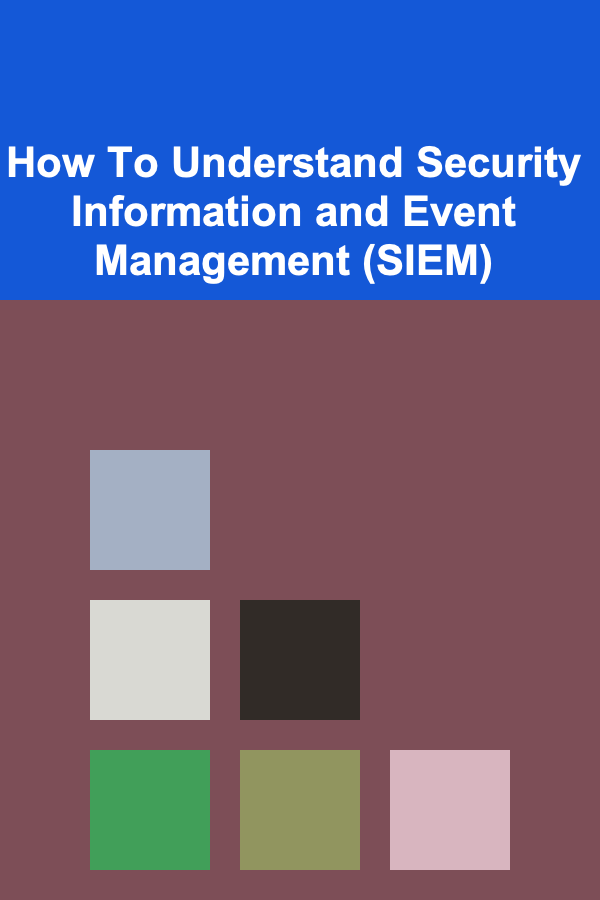
How to Learn to Meditate for Improved Focus
ebook include PDF & Audio bundle (Micro Guide)
$12.99$5.99
Limited Time Offer! Order within the next:

Meditation has gained increasing popularity over the years, becoming a widely practiced method for enhancing mental clarity, reducing stress, and boosting overall well-being. Among the numerous benefits that meditation offers, one of the most significant is its ability to improve focus and concentration. As the world grows busier and distractions are more readily available, the need for a focused mind has never been more critical. In this article, we will explore how you can learn to meditate for improved focus, providing insights into the process, techniques, and benefits of meditation.
Understanding Focus and Its Importance
Focus is the ability to direct your attention to a specific task, thought, or goal while blocking out distractions. It's an essential skill that contributes to productivity, performance, and mental clarity. Without proper focus, tasks become harder to complete, thoughts become scattered, and efficiency plummets. For students, professionals, and anyone who desires to excel, focus is crucial for success.
However, in today's fast-paced, technology-driven world, maintaining focus has become increasingly difficult. Social media, constant notifications, and the overwhelming amount of information available at our fingertips make it easy for our attention to shift from one thing to the next. In response to this, many have turned to meditation to help regain control over their minds and sharpen their focus.
Meditation has been shown to strengthen the brain's ability to maintain attention, increase cognitive flexibility, and improve the capacity to stay present in the moment. By learning to meditate, you are not only developing a technique to manage your thoughts but also enhancing your overall ability to concentrate and perform tasks with heightened clarity and precision.
The Science Behind Meditation and Focus
Meditation works by training the mind to concentrate and manage distractions. Over time, this practice leads to neurological changes that help improve cognitive abilities, particularly attention and focus. Research in neuroscience and psychology has demonstrated that regular meditation can increase gray matter in areas of the brain associated with focus, such as the prefrontal cortex. This region is responsible for higher-order functions such as decision-making, problem-solving, and impulse control.
Furthermore, meditation has been found to increase the activity of the brain's default mode network (DMN), which is associated with spontaneous thought processes and self-reflection. The DMN is often activated during mind-wandering, which can interfere with focus and attention. Regular meditation practice helps to reduce the frequency of mind-wandering by training the mind to remain present and engaged.
Studies have also shown that mindfulness meditation, in particular, can improve working memory and executive function. Working memory is essential for holding information in the mind while performing tasks, while executive function allows individuals to plan, organize, and execute complex tasks. Both of these cognitive functions are vital for sustained focus.
Getting Started: Basic Steps to Learn Meditation
Learning to meditate for improved focus doesn't require any special tools or equipment, and it can be done by anyone, regardless of experience. Here are some fundamental steps to get started with meditation:
1. Choose a Quiet and Comfortable Space
Finding the right environment is crucial for successful meditation. Ideally, you want a space where you can sit or lie down without being interrupted. This could be in your bedroom, living room, or any place that feels peaceful. Avoid noisy or chaotic areas that could disrupt your concentration.
Ensure that the space is comfortable. You don't need an elaborate meditation cushion or mat---just something that allows you to sit upright without discomfort. If sitting on the floor is not comfortable, sitting in a chair with your feet flat on the ground is also a good option.
2. Set a Time Limit
If you are new to meditation, it's best to start with short sessions. Begin with just five to ten minutes and gradually increase the duration as you become more comfortable. Setting a time limit will prevent you from feeling overwhelmed, and it allows you to maintain focus without constantly checking the clock.
You can use a timer or meditation app with a gentle alarm to signal the end of your session. This helps you stay focused on your practice instead of worrying about the time.
3. Focus on Your Breath
The breath is one of the most common and effective objects of meditation. By focusing on your breathing, you can anchor your attention to the present moment and begin to quiet your mind. Here's a simple technique to start:
- Close your eyes and take a few deep breaths, inhaling slowly through your nose and exhaling through your mouth.
- After a few deep breaths, begin to breathe naturally. Focus on the sensation of the breath entering and leaving your nostrils, or the rise and fall of your chest or abdomen.
- When your mind starts to wander, gently guide your attention back to your breath. It's natural for thoughts to arise, but the key is to acknowledge them without judgment and return to your breath.
4. Be Patient and Non-Judgmental
Meditation is not about achieving perfection or clearing your mind entirely. It's about practicing the skill of bringing your focus back when distractions arise. Be patient with yourself, and remember that the goal is to develop greater concentration over time. When you catch yourself thinking about something else, simply acknowledge the thought and return your attention to your breath.
Avoid judging yourself for wandering thoughts. It's a normal part of the meditation process. The more you practice, the easier it becomes to maintain focus and remain in the present moment.
5. Experiment with Different Techniques
While focusing on the breath is a simple and effective technique, there are other methods of meditation that may suit you better, depending on your personal preferences. Here are a few to try:
- Body Scan Meditation: This involves mentally scanning your body from head to toe, noticing any areas of tension or discomfort. It helps to increase body awareness and improve concentration.
- Mantra Meditation: This involves silently repeating a word or phrase (mantra) during meditation. The repetition helps to anchor your attention and minimize distractions.
- Guided Meditation: In guided meditation, you listen to a recorded voice that leads you through a meditation session. This can be helpful for beginners as it provides structure and guidance.
- Mindfulness Meditation: This involves observing your thoughts and feelings without judgment. The aim is to be fully present and aware of your thoughts without getting attached to them.
6. Make Meditation a Daily Habit
To see the benefits of meditation on your focus, consistency is key. Try to meditate every day, even if only for a few minutes. Over time, meditation will become a natural part of your routine, and you'll begin to notice improvements in your focus, concentration, and mental clarity.
If you're struggling to find time for meditation, consider incorporating it into your daily schedule. You can meditate in the morning before starting your day, during a lunch break, or before going to bed.
Overcoming Common Challenges in Meditation
When you first start meditating, it's common to face challenges. Here are some obstacles you may encounter and how to overcome them:
1. Wandering Thoughts
It's natural for your mind to wander during meditation. When this happens, don't become frustrated or discouraged. Instead, gently bring your attention back to your chosen point of focus, whether it's your breath, a mantra, or a visualization. With practice, you'll be able to recognize when your mind has drifted and return to the present moment more easily.
2. Discomfort or Restlessness
If you experience discomfort while sitting, adjust your position or try lying down. It's important to find a posture that allows you to stay relaxed and focused. If you feel restless, try taking a few deep breaths or engaging in a brief body scan to release any tension.
3. Time Constraints
If you're pressed for time, remember that even a short meditation session can be beneficial. Start with just five minutes and gradually increase the duration as you get more comfortable. Over time, meditation will feel less like a time-consuming task and more like an essential part of your routine.
The Long-Term Benefits of Meditation for Focus
The benefits of meditation extend far beyond immediate improvements in focus. With consistent practice, you'll experience long-term gains in various areas of your life:
- Increased Productivity: Meditation enhances your ability to concentrate on tasks, which leads to greater productivity and efficiency.
- Improved Mental Clarity: Meditation helps clear mental fog and sharpens your decision-making abilities, allowing you to think more clearly and rationally.
- Reduced Stress: Regular meditation reduces stress by promoting relaxation and lowering cortisol levels. A relaxed mind is better able to focus on important tasks without becoming overwhelmed.
- Better Emotional Regulation: Meditation helps you manage emotions more effectively, reducing impulsive reactions and improving your ability to stay calm under pressure.
- Enhanced Creativity: By quieting the mind, meditation fosters a greater sense of creativity and problem-solving ability.
Conclusion
Meditation is a powerful tool for improving focus, concentration, and overall mental well-being. By incorporating meditation into your daily routine, you can train your mind to stay present, manage distractions, and enhance cognitive performance. The key is consistency and patience---meditation is a skill that improves with time and practice.
Start with simple techniques like breath-focused meditation, and experiment with different methods to find what works best for you. With dedication, you will find that meditation not only improves your ability to focus but also enhances other aspects of your life, from productivity to emotional well-being.

How to Create a Chic and Cozy Reading Nook on a Budget
Read More
How to Organize a Family Holiday Decorating Challenge
Read More
How to Stage Your Home for a Virtual Tour or Video Walkthrough
Read More
Turning Deep Learning into a Long-Term Passive Income Strategy
Read More
How To Understand Security Information and Event Management (SIEM)
Read More
How to Build a Space Observatory
Read MoreOther Products

How to Create a Chic and Cozy Reading Nook on a Budget
Read More
How to Organize a Family Holiday Decorating Challenge
Read More
How to Stage Your Home for a Virtual Tour or Video Walkthrough
Read More
Turning Deep Learning into a Long-Term Passive Income Strategy
Read More
How To Understand Security Information and Event Management (SIEM)
Read More